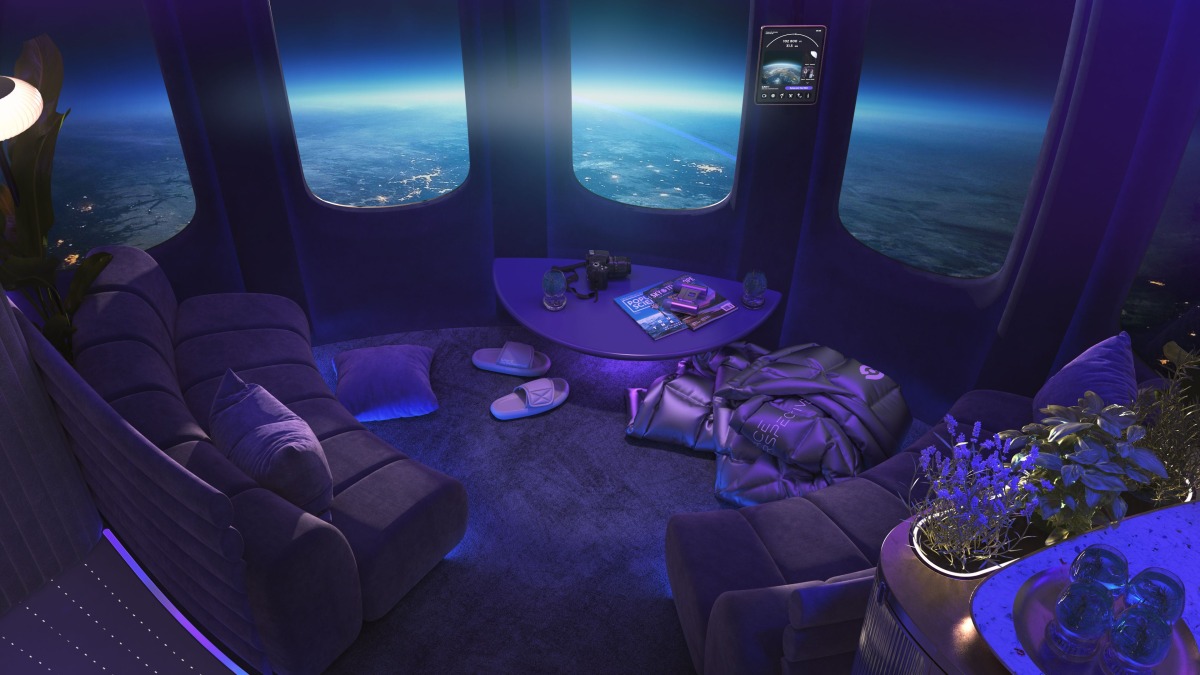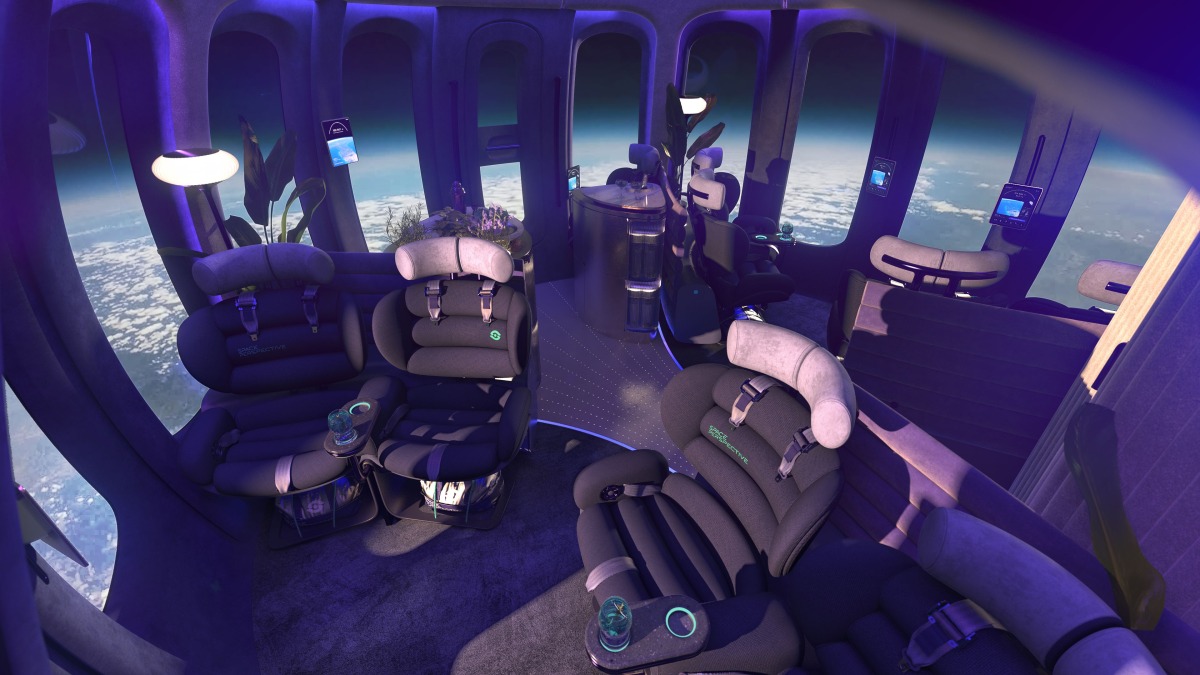Space Perspective unveils lavish interior of balloon-borne tourist capsule
Spaceship Neptune will start carrying customers to the stratosphere in 2024, if all goes according to plan.

Space Perspective wants its passengers to fly in style.
The Florida-based company is working to send paying customers (as well as research payloads) to the stratosphere aboard its "Spaceship Neptune," a pressurized capsule that will cruise high above Earth beneath an enormous balloon.
Space Perspective just released artist's illustrations of the interior of Spaceship Neptune, which will include 360-degree panoramic windows and even a restroom with a view. The announcement Tuesday (April 12) coincided with the anniversary of the first human spaceflight by cosmonaut Yuri Gagarin in 1961.
Based on the imagery, Spaceship Neptune's cabin appears to come in at least a couple of configurations. One has reclining seats, for example, while another with couches can accommodate a "more intimate dinner for two or special event," Space Perspective representatives said in a statement on Tuesday.
Space Perspective will provide food and beverage services, and the capsule features mood lighting that can be dimmed to see stars or the curvature of Earth outside.
Related: The first space tourists in photos

Also included in the capsule's "Space Lounge" will be a telescope, interactive screens and decorations such as floor lamps and plants to "remind us of the interconnected nature of our planet," the company added.
Breaking space news, the latest updates on rocket launches, skywatching events and more!
"Our mission is to inspire space explorers to connect more closely with our planet and each other, and the environment in which they travel with us is central to this," Jane Poynter, founder, co-CEO and chief experience Officer of Space Perspective, said in the same statement. "Our Space Lounge is a world away from the white, utilitarian environments you find in other spacecraft."
A typical Space Perspectives mission will lift off at dawn and will take about two hours to reach the maximum altitude of 100,000 feet (30 kilometers). Spaceship Neptune will glide for two hours at such heights, then take another two hours or so to descend leisurely toward an ocean splashdown, after which it will be retrieved by ship.
Space Perspective hopes to begin commercial flights in 2024, with paying passengers expected to pony up about $125,000 apiece for the opportunity. For comparison, Virgin Galactic currently charges $450,000 per seat on its suborbital flights. Jeff Bezos' Blue Origin, which also offers suborbital rides, has not released general pricing details yet.
So far, there are about 600 people on Space Perspective's waiting list; each has made a refundable deposit of as little as $1,000. The company has raised millions of dollars in seed funding and made a successful uncrewed test flight from NASA's Kennedy Space Center in Florida in 2021.
Follow Elizabeth Howell on Twitter @howellspace. Follow us on Twitter @Spacedotcom or Facebook.

Elizabeth Howell (she/her), Ph.D., was a staff writer in the spaceflight channel between 2022 and 2024 specializing in Canadian space news. She was contributing writer for Space.com for 10 years from 2012 to 2024. Elizabeth's reporting includes multiple exclusives with the White House, leading world coverage about a lost-and-found space tomato on the International Space Station, witnessing five human spaceflight launches on two continents, flying parabolic, working inside a spacesuit, and participating in a simulated Mars mission. Her latest book, "Why Am I Taller?" (ECW Press, 2022) is co-written with astronaut Dave Williams.
